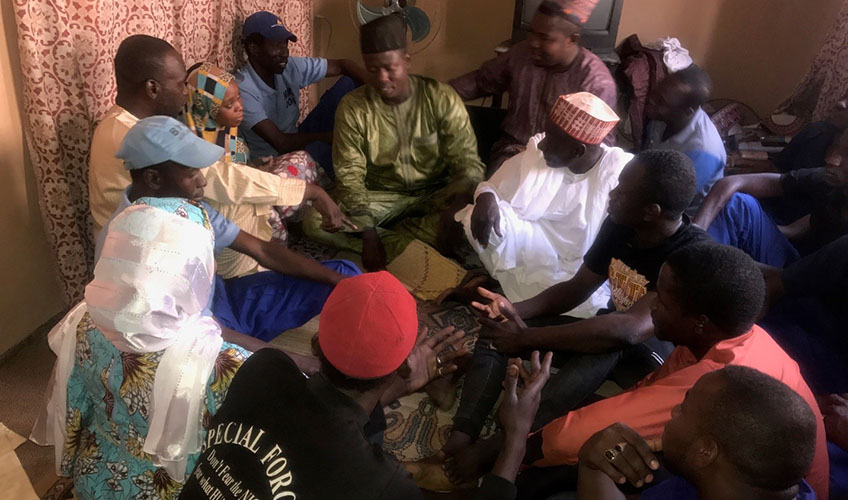Reinforcing social cohesion through collaboration: the case of Shehuri South
With most of northeast Nigeria grappling with the effects of the Boko Haram conflict, previously stable communities are under pressure to maintain social cohesion.
One such community is Shehuri South, east of Maiduguri. Before the insurgency, this small town, inhabited largely by the Kanuri tribe, was very traditional. Conflicts such as over land, the internally displaced, marriage, and tenancy agreements were resolved, almost exclusively, by Bulamas and Lawans (village and ward chiefs).
However, the insurgency and the displacement, which followed it, destroyed this social arrangement, resulting in a struggle for power between traditional leaders and members of Civilian Joint Task Force (CJTF) – a group of government supported youthful vigilantes that emerged from the spoils of the conflict.

Traditional leaders believe that the CJTF’s militarised way of resolving disputes has spread fear and terror among the population. They also believe that this new way of resolving disputes has left community members with no other choice but to obey. On the other hand, CJTF members say that the reason community members have lost trust in the traditional dispute resolution mechanism can be attributed to the corrupt nature in which the Bulamas and Lawans used to conduct themselves whilst adjudicating conflicts.
“Today, community members are more comfortable coming to us with their issues. They get justice and their cases are resolved without them having to offer any incentive as was the case with traditional leaders,” said a CJTF leader.
Across northeast Nigeria and in Shehuri South, tensions between traditional leaders and the CJTF have been flaring. Traditional leaders feel very strongly that their position and influence over communities has been usurped, something which has subsquently led to mistrust.
With funding from the French Embassy in Nigeria, International Alert is providing space for mediation between traditional leaders and CJTF members through the Ido da Ido (Face to Face) project.
Alert has supported peacebuilding initiatives, especially around conflict resolution, and provided the two conflicting parties with space for dialogue. The project has established a peace platform where community issues are identified and collaboratively addressed. Participants at these meetings have also been able to hold peace platform meetings in their respective communities, independently of the project. Participants have also shown a willingness to involve other members of the community including women and youth.
According to Ba Adam, a CJTF member:
Bringing the CJTF and traditional leaders together to promote peace has been an eye-opener for me. I have come to understand that if we want to maintain sustainable peace and resolve conflicts non-violently in our communities, we must create an all-inclusive platform where everyone has a voice, and can be heard.
One of the Bulamas told us:
This platform was created as a result of the engagement with International Alert, which brought us together to work and promote peaceful reconciliation and dialogue. I now have a better understanding of the positive roles of the CJTF in building community peace through this platform. We have collaborated, and we have an improved understanding that our community’s peace is paramount beyond any grief or mistrust. We realise that we must work together to build peace.
About the project
Ido da Ido (Face to face) promoted peaceful relationships between communities and formalised vigilante groups, formally referred to as Civilian Joint Task Forces (CJTF), by promoting their positive roles as community peacekeepers in northeast Nigeria. The project was implemented in Maiduguri metropolitan council and some parts of Jere LGA in Borno state.
The project led to a shift of the community’s negative perspective of the role of the CJTF, with 98% of women and 91% of men confirming there was now a positive relationship between CJTF and their communities. Alert facilitated the development of a code of conduct for CJTF members. In June 2019, a CJTF member was arrested for acts of torture, and was promptly reprimanded based on the provisions of the code of conduct.
Ido da Ido was funded by the French Embassy in Nigeria.






